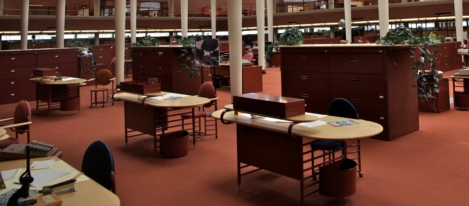June 19, 2015
RICS case studies focus on business impact of strategic facilities management
 Six case studies, which outline how businesses can make the most of strategic facilities management to enhance their performance are being launched today (19 June), at the NEC in Birmingham. Developed by International Workplace for the Royal Institute of Chartered Surveyors, the latest set of case studies in the series, provides examples of best practice as outlined in RICS’ Strategic Facilities Management (FM) Guidance Note. The case studies, which can be downloaded from RICS’ website, cover a range of strategic FM issues including procurement, innovation, technology, sustainability, talent management and health and safety. Key themes include a professional understanding of the impact of FM to a company’s reputation, brand and performance, engagement with staff and the supply chain, the importance of measuring impact and outcomes and communication.
Six case studies, which outline how businesses can make the most of strategic facilities management to enhance their performance are being launched today (19 June), at the NEC in Birmingham. Developed by International Workplace for the Royal Institute of Chartered Surveyors, the latest set of case studies in the series, provides examples of best practice as outlined in RICS’ Strategic Facilities Management (FM) Guidance Note. The case studies, which can be downloaded from RICS’ website, cover a range of strategic FM issues including procurement, innovation, technology, sustainability, talent management and health and safety. Key themes include a professional understanding of the impact of FM to a company’s reputation, brand and performance, engagement with staff and the supply chain, the importance of measuring impact and outcomes and communication.



































June 23, 2015
Design must support knowledge circulation in the next generation workplace
by Lee Parsons • Comment, Knowledge, Workplace design
(more…)